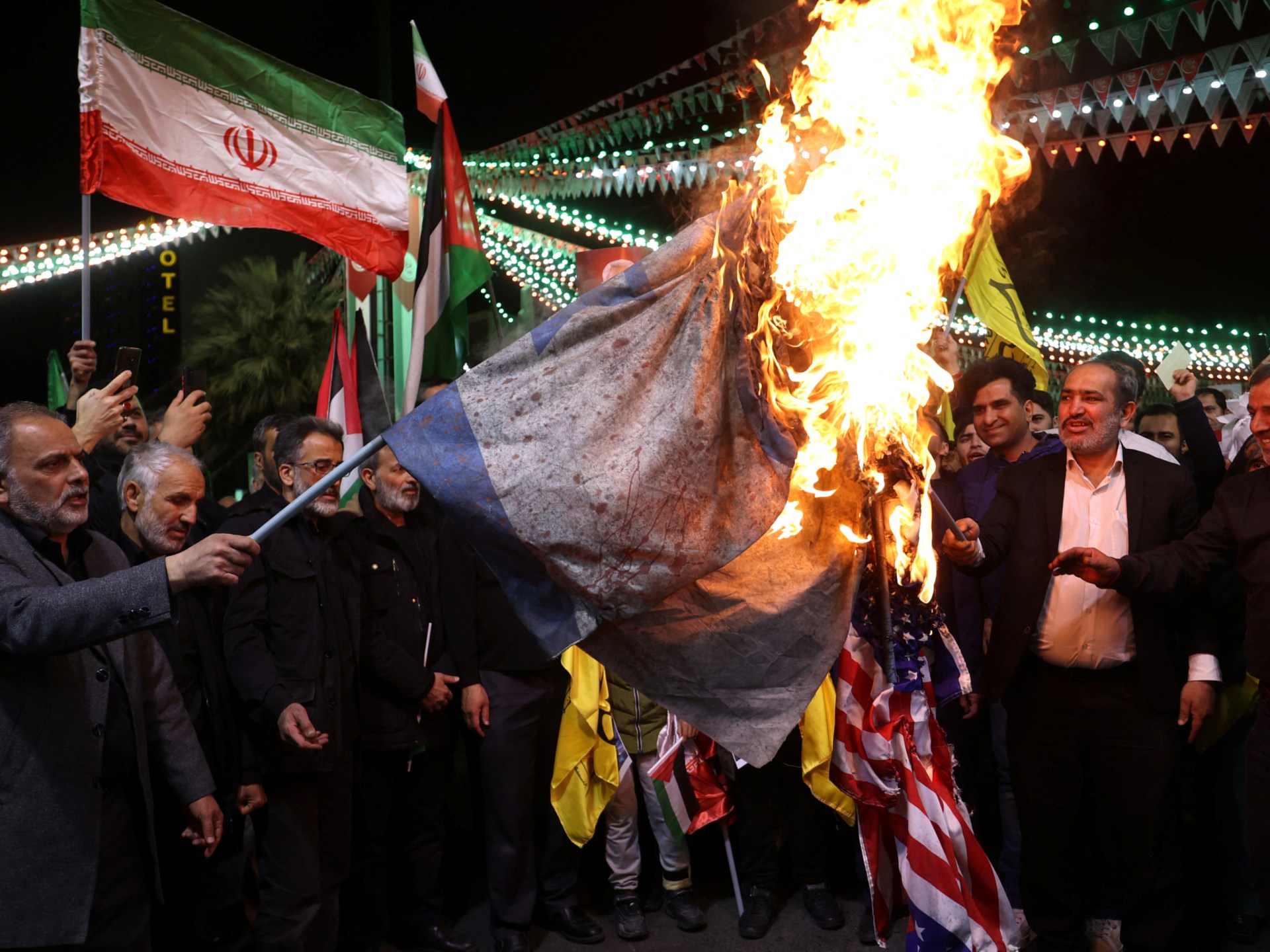Demonstrators burn American and Israeli flags during an anti-Israel protest in Tehran (Reuters)
It seems that "Israel has shifted from a 'shadow war' to directly and openly targeting Iran," after it assassinated a number of Quds Force leaders in a bombing of a building attached to the Iranian consulate in Damascus, including prominent commander Mohammad Reza Zahedi.
This is what was stated in the Israeli newspaper Haaretz, which pointed out, before talking about the possible scenarios, that Israel, which has so far adhered to the implicit and informal rules of the secret “shadow war,” changed its strategy by attacking this building that hosts the leaders of the Quds Force responsible for operations in Syria and Lebanon, that is, It dealt a direct blow to Iran.
Read also
list of 4 itemslist 1 of 4
Russian newspaper: Negotiations or ruin for Ukraine
list 2 of 4
New York Times: Trump's call on Israel to end the war worries his allies
list 3 of 4
Bloomberg: The shadow war between Israel and Iran has entered a new phase
list 4 of 4
A doctor who worked in Gaza: This is a war on children!
end of list
Haaretz, in an article by its writer Alon Pinkas, considered that what Israel did was “the right and inevitable thing,” but it warned that the choice of timing was not successful given the context and circumstances of the ongoing war in Gaza, which turned this attack into “a reckless act of Deliberate escalation that may not only involve a significant expansion of the war, but may also involve the United States, depending on the scope and timing of Iranian retaliation.
But what are the possible ways for Iranian retaliation? This is what Pinkas defined in 4 scenarios:
First, Iran must adhere to its long-standing policy of not responding immediately, but rather waiting patiently to retaliate at a carefully chosen time, place, and target that is proportional to the symbolic and real damage caused by the Israeli attack.
But the importance and symbolism of the targets struck by Israel, the political protest in Tehran demanding revenge to restore honor and deterrence, and Iran's reputation among its proxies, make this a difficult but still possible option, according to the writer.
The Iranian flag is attached to the wall as smoke rises after what Iranian media said was an Israeli raid on a building near the Iranian embassy in Damascus (Reuters)
Second, Iran has no choice but to respond quickly and proportionately, thus targeting Israeli ships, embassies and individuals abroad. This depends on intelligence and opportunity, two elements that Iran is likely to possess, but the problem with this option is that it unleashes a process of mutual escalatory steps.
The third option is to move towards a complete escalation through Hezbollah in Lebanon and involve Israel in a second front that is much more deadly and costly than it was in Gaza.
This option, according to the author, raises a crucial question regarding the level of Iranian control and influence over Hezbollah: Can Tehran actually force the party to engage in a war that would wreak havoc in Lebanon?
The fourth is the doomsday scenario, in which an angry and humiliated Iran launches attacks that are not limited to important Israeli targets, but also include American targets in the Arabian Gulf.
But the writer ruled out this option as “unreasonable and irrational,” but Pinkas added that escalation usually has its own characteristics, and what may be unintended at the beginning can quickly turn into a broader conflict, as he put it.
Source: Haaretz

